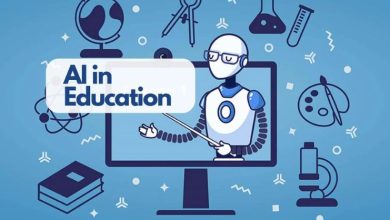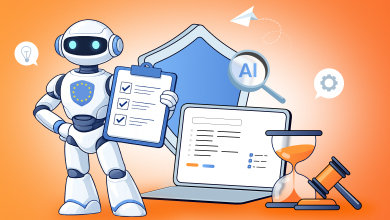
In the rapidly developing landscape of AI, it’s no wonder that digital-native industries have often been first to embrace the technology. Sectors like ecommerce and software development, typically built on adaptable infrastructures and agile methodologies, have generally welcomed AI with open arms. Their comfort with automation, data-driven decision-making and virtual customer service assistants has given them a natural head start.
By contrast, traditional sectors like tax have approached AI with greater caution. Understandably so, considering tax professionals operate within a strict regulatory environment, where accuracy, security, and client trust are non-negotiable. The notion of handing over in depth, sensitive tax issues to a black box raises legitimate concerns.
Many firms are wary of the risks and dubious about the promised efficiency gains if AI malfunctions, as it has done in the past. Well-publicised reports of AI hallucinations producing erroneous and potentially damaging outputs, and the dangers of exposing confidential financial data in publicly available GenAI tools, have done nothing to help credibility.
The prospect of deploying AI tools can also feel out of reach for firms without the technical know-how or digital innovation culture to drive transformation. It’s this mix of compliance concerns, technical barriers, and traditional mindsets that’s going to hold back widespread adoption of AI in the tax space. Unless AI can think logically about tax in the same way as tax professionals do.
When AI starts behaving a bit more like humans
This is an evolution that’s not so far-fetched with a new wave of AI models on the horizon, known as Agentic AI. Designed to act autonomously, these AI agents can be taught to achieve specific goals by making decisions, taking actions, and adapting as needed. And much like a human assistant, an agent can interact with multiple systems and applications, other AI agents, and people, with minimal oversight.
Notably, unlike traditional workflow tools using Robotic Process Automation (RPA), which follow rigid, pre-programmed rules to automate repetitive tasks, Agentic AI can understand context, react to changes, and navigate complex workflows. This enables it to focus on activities to reach the desired outcome, instead of completing step-by-step tasks by rote. To do this, it uses language or multimodal models to interpret instructions, reason through actions, and decide how to progress.
Although it might seem incongruous at first, Agentic AI could be introduced into existing automated tax workflows to manage a specific part of the process, previously carried out by humans, where judgment is essential.
How Agentic AI adds value in tax processing
For example, combining RPA and AI could be highly effective for jobs like mapping a trial balance, a task that involves extracting, classifying, and reconciling large amounts of financial data. RPA can automate repetitive, rule-based steps including extracting trial balance data from ERP or accounting systems and entering it into spreadsheets or other applications. Then, Agentic AI could handle functions that require assessment, such as highlighting key areas to a human reviewer that require further investigation, or perhaps where more information is required to reach a conclusion.
This is just one illustration of how an AI agent could improve efficiency within the tax industry, but there are plenty of areas that would benefit. Many tasks, like reviewing a corporate tax computation, are typically still completed manually using lengthy checklists. A reviewer may have to tick through 60+ items. While necessary, it’s a tedious and repetitive process that often ties up valuable time.
This is where Agentic AI can act as a digital assistant augmenting junior reviewers. An AI agent can learn how the human reviewer behaves, autonomously conduct a first-pass review, and flag any exceptions for human investigation. This frees up professionals to focus on higher-value tasks that demand expertise and judgment.
Beyond review, Agentic AI can handle routine but error-prone steps in tax workflows, like submitting computations to HMRC then archiving them to internal systems, such as SharePoint. Unlike RPA, which can break down when unexpected issues arise, say a server outage or unfamiliar error message, Agentic AI can adapt to resolve the issue, notify the right team, or even refer it to another more expert AI agent to address.
Agent turned co-worker, turned teacher
In the future, Agentic AI could learn different specialist tax areas by training on relevant regulations, and firm-specific practices such as VAT, transfer pricing, or international tax compliance. Each agent would behave as a digital specialist, continuously learning from past data, user interactions, and updates to legislation.
What makes Agentic AI especially powerful is its ability to collaborate and cross-refer. For instance, if an AI agent reviewing a corporate tax computation encounters an issue that might impact the VAT return, it could refer the query to the VAT-specialist AI agent, or human. Also, agents can share insights and updates, perhaps new filing procedures or revised rules, allowing them to train each other.
This interconnected ecosystem system mirrors how human tax teams operate, but with far greater speed, creating an always-learning, AI-supported tax workforce. Because agents can work like junior team members, learning by example and improving over time, they could allow tax firms to integrate AI into day-to-day operations without a major technical overhaul. However, it will require careful planning to achieve the right balance of people and digital assistants.
If used responsibly, Agentic AI could become a vital collaborative layer in tax teams, relieving them from mundane tasks while maintaining control, accuracy, and compliance. It wouldn’t necessarily replace staff but would make them more effective and freed from tedious work. As such, Agentic AI could soon offer a more structured path for tax firms to gain much-desired productivity benefits, without compromising the standards the profession depends on.



